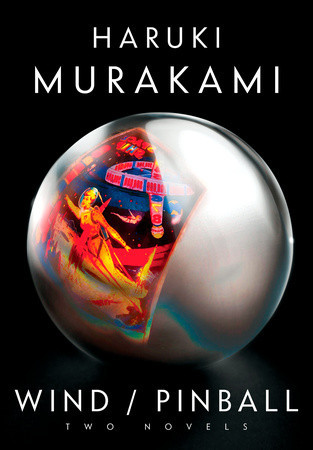On any given day, something can come along and steal our hearts. It may be any old thing: a rosebud, a lost cap, a favorite sweater from childhood, an old Gene Pitney record. A miscellany of trivia with no home to call their own. Lingering for two or three days, that something soon disappears, returning to the darkness. There are wells, deep wells, dug in our hearts. Birds fly over them.In the introduction to Wind/Pinball, Haruki Murakami describes the epiphany that struck him while watching a baseball game in his 20s – that he could write a novel; something he had never considered before – and he then goes on to tell the story of how he knocked out Hear the Wind Sing at his kitchen table, late each night, after returning from his day job at the jazz club he owned with his wife. Finished in just four months, Murakami sent his only copy of the manuscript off to a publisher and claims to have pretty much forgotten about it until he was informed that not only was the book going to be published, but it was shortlisted for (and eventually won) a literary prize. Emboldened, Murakami then wrote the semi-sequel Pinball, 1973, and eventually, had the confidence to sell the business and start writing full time. Along the way, he faced a lot of criticism from the Japanese literary establishment for his subversion of the proper use of the language, and as that hints at how revolutionary Murakami's work really was, it leaves me wishing I had a better understanding of what the establishment was like. The other thing we learn is that Murakami later saw these two early novellas as embarrassingly amateurish and had blocked all efforts over the years to re-release them, and although the completionist in me is satisfied that they were finally made available this year, I would have to admit that they aren't representative of Murakami's real genius and wouldn't make a good entry-level introduction to his oeuvre.
So, we learn how Murakami developed an informal method of writing Japanese (by attempting to write in his limited English and then translating back into Japanese), but I'm left wondering about the context of his subjects – writing just twenty years after the Americans bombed Hiroshima and Nagasaki, Murakami stuffed these books with American pop culture references; like having everyone listen to The Beach Boys and Bobby Darrin, characters remember and lament the assassination of JFK, and a writer states that his biggest influence was the (fictional) American sci-fi writer Derek Hartfield. Did these references also annoy the establishment?
As for the actual books, they certainly prefigure the themes that Murakami would become known for – the precision of describing music and meals, the inscrutable females, the whisky, the trains, the cats, and the omnipresent wells – but despite some slightly odd events, Wind/Pinball doesn't quite embrace the surreality that later books so impressed me with. I love that we meet the Rat for the first time, but without a Sheep Man, Murakami is only teasing at the edges of what he would eventually embrace. I'm happy to have been able to read these short novels , but only in an archaeological sense: I can recognise them as crude and early works of art that might not be appreciated by those who don't know what comes later.
Where there is an entrance, there is usually an exit. That's the way things are made. Mailboxes, vacuum cleaners, zoos, salt shakers. Of course there are exceptions. Mousetraps, for instance.

